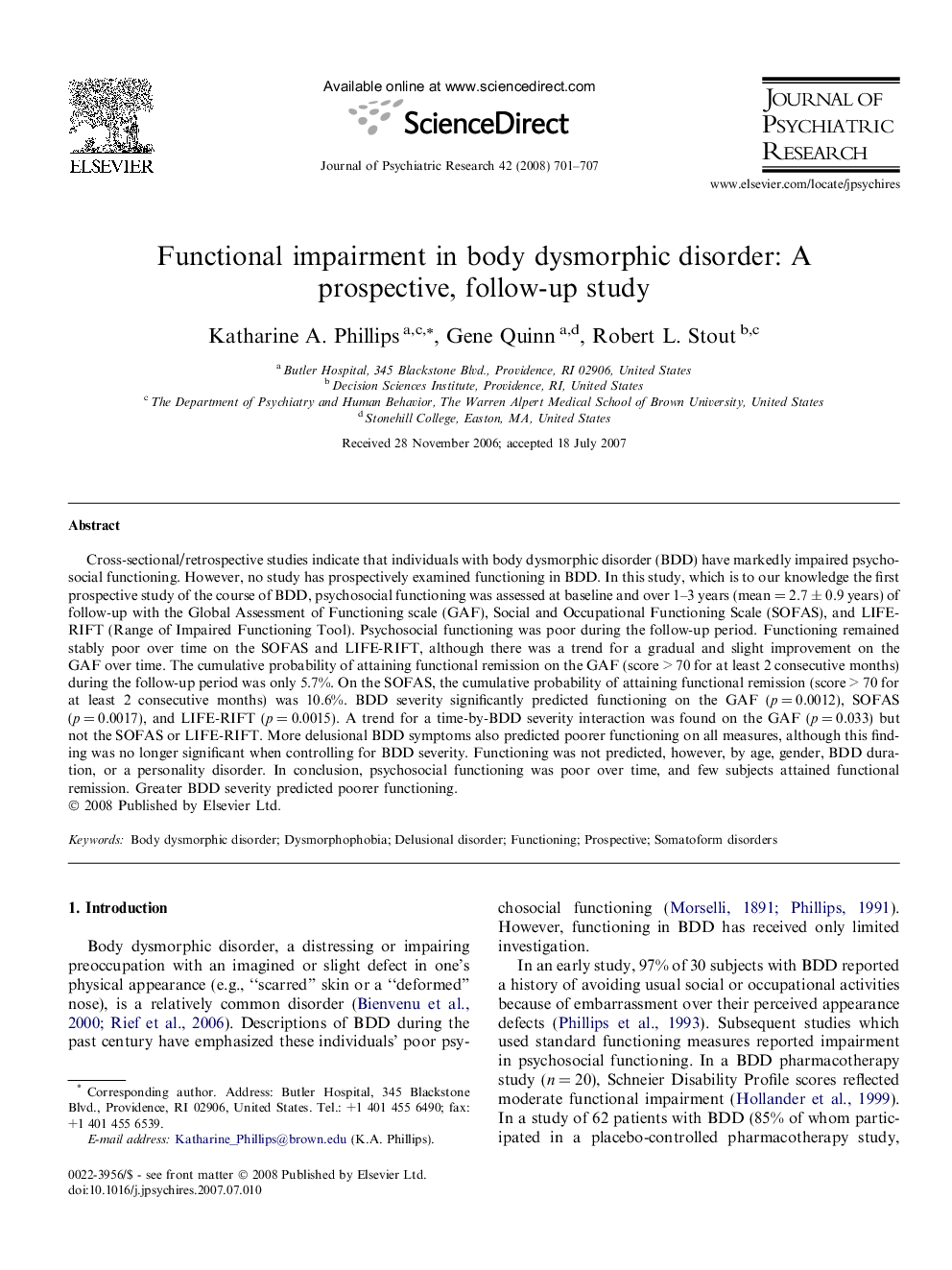| Article ID | Journal | Published Year | Pages | File Type |
|---|---|---|---|---|
| 328050 | Journal of Psychiatric Research | 2008 | 7 Pages |
Cross-sectional/retrospective studies indicate that individuals with body dysmorphic disorder (BDD) have markedly impaired psychosocial functioning. However, no study has prospectively examined functioning in BDD. In this study, which is to our knowledge the first prospective study of the course of BDD, psychosocial functioning was assessed at baseline and over 1–3 years (mean = 2.7 ± 0.9 years) of follow-up with the Global Assessment of Functioning scale (GAF), Social and Occupational Functioning Scale (SOFAS), and LIFE-RIFT (Range of Impaired Functioning Tool). Psychosocial functioning was poor during the follow-up period. Functioning remained stably poor over time on the SOFAS and LIFE-RIFT, although there was a trend for a gradual and slight improvement on the GAF over time. The cumulative probability of attaining functional remission on the GAF (score > 70 for at least 2 consecutive months) during the follow-up period was only 5.7%. On the SOFAS, the cumulative probability of attaining functional remission (score > 70 for at least 2 consecutive months) was 10.6%. BDD severity significantly predicted functioning on the GAF (p = 0.0012), SOFAS (p = 0.0017), and LIFE-RIFT (p = 0.0015). A trend for a time-by-BDD severity interaction was found on the GAF (p = 0.033) but not the SOFAS or LIFE-RIFT. More delusional BDD symptoms also predicted poorer functioning on all measures, although this finding was no longer significant when controlling for BDD severity. Functioning was not predicted, however, by age, gender, BDD duration, or a personality disorder. In conclusion, psychosocial functioning was poor over time, and few subjects attained functional remission. Greater BDD severity predicted poorer functioning.
